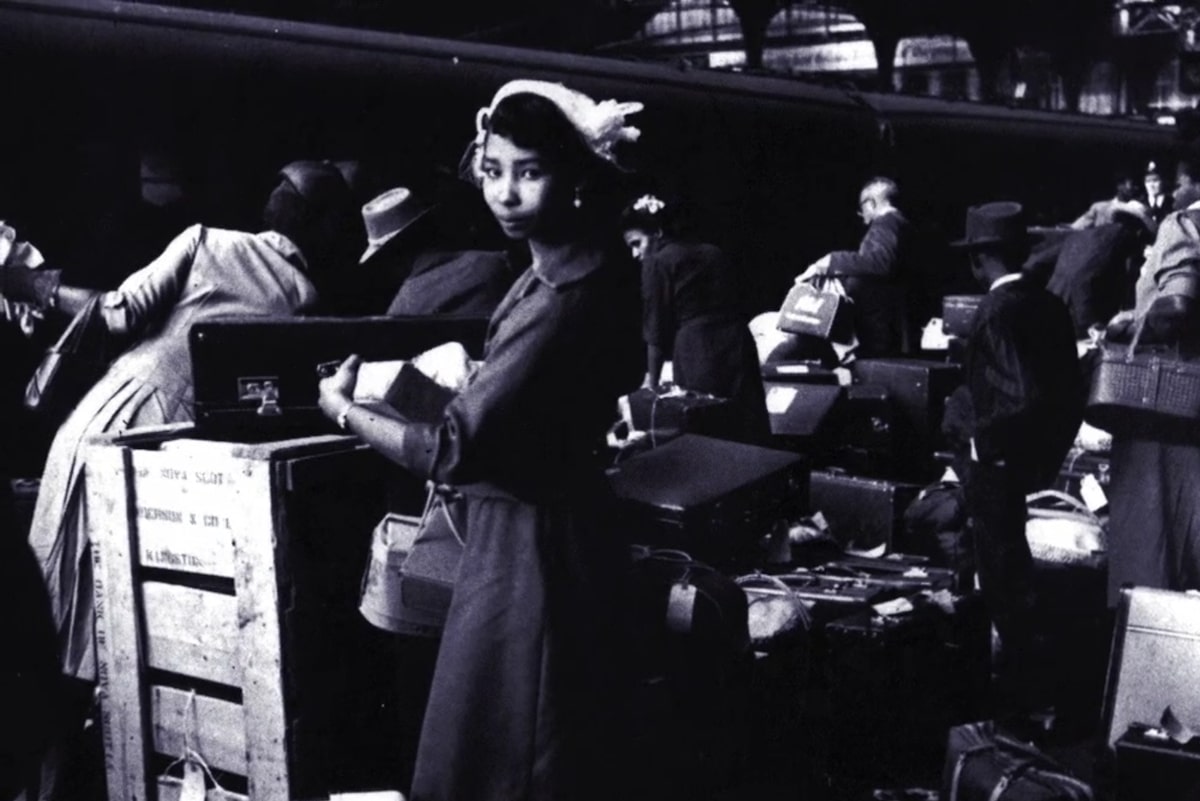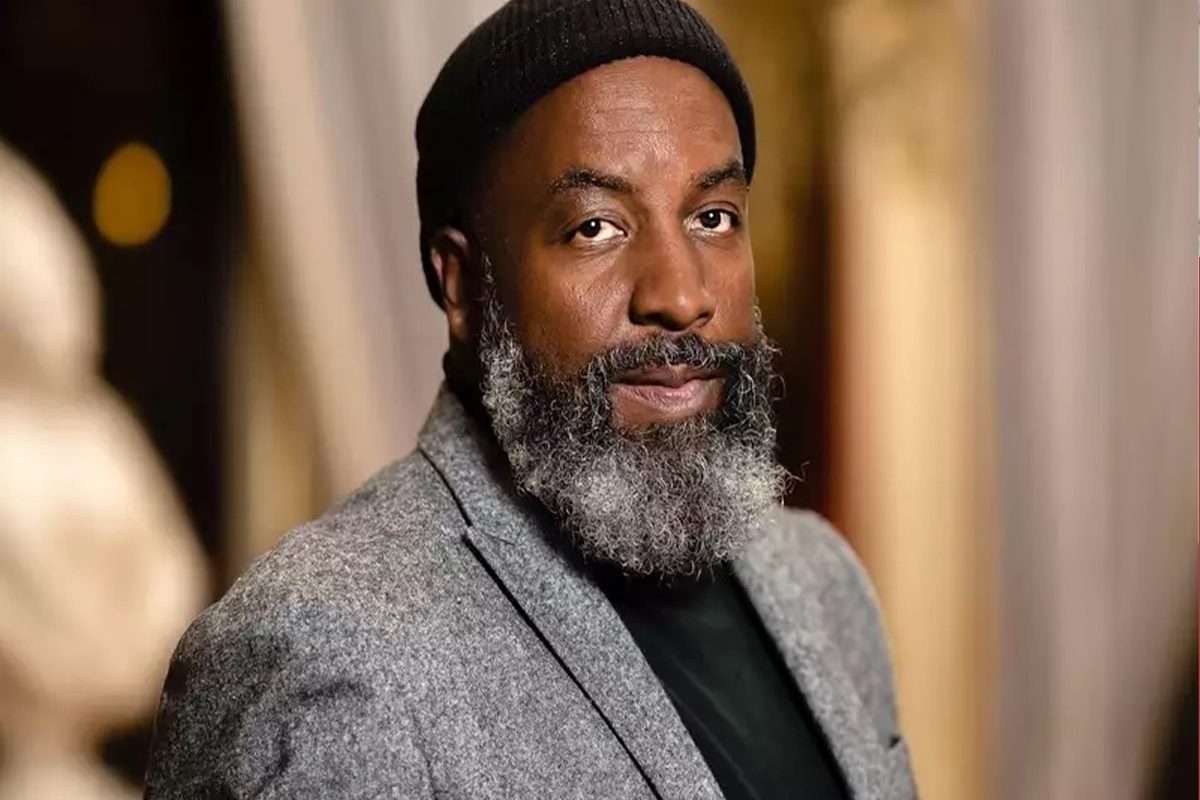James Barnor
Accra/ London – A Retrospective
Serpentine North Gallery, 30 Mar — 24 Oct, 2021
Review by Maame Blue
James Barnor: Accra/ London – A Retrospective is a snapshot of history and a glimmer of possibility. This diverse collection of photographs taken between 1950 and 1980 is a modest selection from a career that spans more than six decades. The images demand a second and third look.
Many of the images are in black and white, which feels apt for a look back at history, but the vibrancy of Barnor’s eye shines through and reinvigorates the images as if they were taken in the present day. The exhibition is divided into 11 sections, with topics including life in Accra, Ghanaian Independence, images taken for the South African Magazine Drum, as well as life in the UK in the 1960s. It unfolds as a living timeline, where visitors are asked to step through and view the decades from Barnor’s perspective. Yet, there is nothing orderly about the images themselves.

Portraits that belong to the Accra Life section of the exhibition are intimate, detailed, youthful. From James Barnor himself as a young man, staring intently into the camera, to a baby on all fours in his studio, captured mid-crawl and unawares. Life breathes through every click of Barnor’s camera.
Even the shots of political game-changers (Kwame Nkrumah at independence) and of cultural icons (Mohammed Ali for Drum magazine) are brought to the same level as everyday people under the careful eye of Barnor. Nkrumah is captured in laughter in more than one image, as if the weight of his country’s freedom were not on his shoulders, while Mohammed Ali, a giant amongst men in real life and in the ring, is given space simply as a sportsman taking a quiet moment to himself before a fight.
This collection of images is more than a photographer’s capturing of his lived moments and those of his newly liberated country; the images are pinch points on the timeline of a well-lived life, but one not without some difficulty. There is a jagged juxtaposition as the exhibition moves from Accra life and Independence to the UK in the 1960s – Barnor goes from disappearing in a crowd as the observer he is to being the only brown face amongst white ones – his fellow art students in London. It wasn’t uncommon at the time, but having endeared the viewer so well to life in Ghana in the 1950s, with its peopled markets and protesting crowds, the change reinforces the experience of otherness that those Ghanaians wanted to disentangle themselves from through their cries for independence.
Despite the many monochrome images, the exhibition is far from being a binary of black and white. In the seventies, Barnor explored the use of colour film, somehow dating those portraits further by making them more colour-coded but also more historic. And he is nothing if not a conversationalist, always in discussion with his subjects, capturing moments with them that speak to the culture of the time and the ever-changing moods that come with living in the world.
This is indeed a retrospective of Barnor’s photography, which nevertheless manages to give an impression of looking forward at what we could be again someday. United, alive, together in one space, captured in possibility.
Photos courtesy of Autograph
https://www.serpentinegalleries.org/whats-on/james-barnor/#article
Speaking in Tongues
JM Coetzee and Mariana Dimópulos discuss political and ethical issues of translation
Mahsa Salali: THE CALL: MUBĀH مُباح
A theatrical performance, a sequence of ceremonial actions that redefines the body’s presence
Małgorzata Mirga-Tas
Representing the visual marginalisation of Roma life
My dead white male artist
A love story in three paintings
A flag as a broken mirror
Encountering men attempting to claim the Union and St George’s flags as signifiers of the far-right, John Siddique turns to a patron saint of his bookshelf, James Baldwin, for guidance
Carefully remembering as healing
Tending to the legend of forgotten Black Londoner Mary Woolaston

Preaching
'Preaching': A new poem by the T.S.Eliot Prize-winning poet Roger Robinson, from his forthcoming New and Selected Poems (Bloomsbury in 2026).

Walking in the Wake
Walking in the Wake was produced for the Estuary Festival (2021) in collaboration with Elsa James, Dubmorphology and Michael McMillan who meditates on the River Thames as we follow black pilgrims traversing sites of Empire.

Illuminating, in-depth conversations between writers.
SpotifyApple Podcasts
Amazon Music
YouTube
Other apps

The series that tells the true-life stories of migration to the UK.
SpotifyApple Podcasts
Amazon Music
YouTube
Other apps















